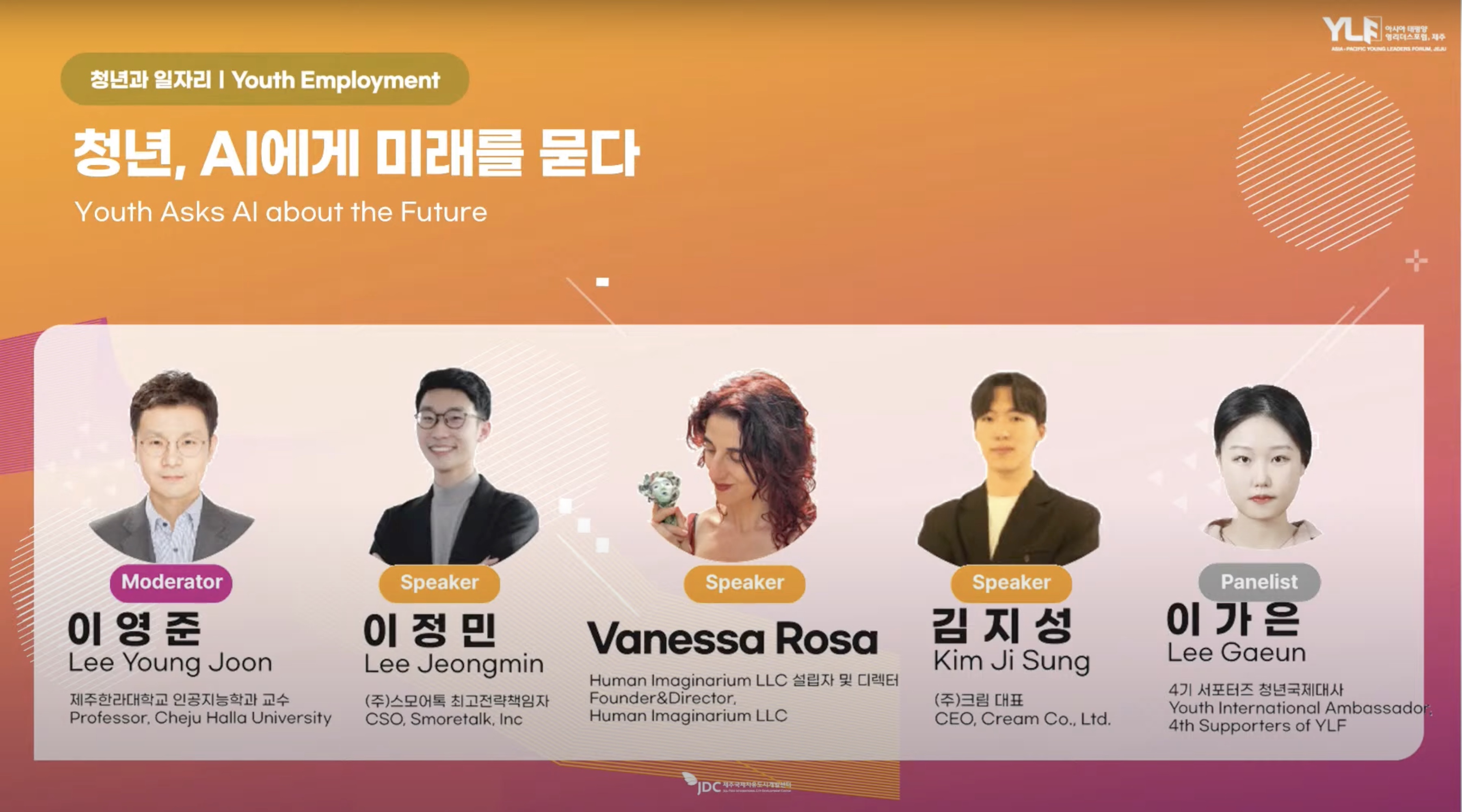Reflections on Youth and AI: Insights from the 4th Asia-Pacific Young Leaders Forum

Last week, I had the privilege of moderating the special session “Youth Asks AI about the Future” at the 4th Asia-Pacific Young Leaders Forum held at Cheju Halla University’s Halla Convention Center. The session proved to be a fascinating exploration of AI’s role in shaping youth opportunities and challenges in our rapidly evolving digital landscape.
As I opened the session, I emphasized how AI’s significance is rapidly expanding across various sectors, while also acknowledging the complex reality of its impact on employment. Recent layoffs at major AI companies highlight the importance of understanding both the opportunities and challenges this technology brings to the job market.
Our distinguished speakers brought diverse and insightful perspectives to the discussion. Lee Jeongmin, CSO of Smoretalk, highlighted how we’re entering AI’s third phase, moving beyond human capabilities. She demonstrated AI’s potential to increase work efficiency by up to five times and emphasized the growing importance of AI literacy in future employment. Her message to youth was clear: don’t fear new technologies, embrace them and learn to harness their potential.
Kim Ji-sung, CEO of Cream, shared valuable insights on AI’s integration in the webtoon industry. He addressed several critical challenges, including artwork consistency, workflow integration, and copyright concerns. Kim emphasized three key aspects for successful AI integration: ensuring real-world effectiveness, fostering human coexistence with AI, and promoting sustainable industry growth. When asked about government support, he stressed the importance of educational initiatives that help identify and develop areas where humans and AI can effectively collaborate.
Vanessa Rosa from Human Imaginarium LLC shared her inspiring journey of combining traditional ceramics with 3D modeling and AI. She emphasized the need for transparency in AI development and discussed the delicate balance between artistic creativity and AI capabilities. When questioned about AI potentially limiting creativity, Rosa highlighted the importance of companies considering both data transparency and social responsibility in AI development.
The session sparked important discussions about the future of AI and human collaboration. We explored the need for continued educational support from government institutions and strategies for youth to adapt to and thrive in an AI-integrated future. The speakers unanimously agreed on the importance of maintaining human agency in AI development while embracing its potential for enhancement rather than replacement.
Looking ahead, several key recommendations emerged for young people navigating this AI-driven landscape. First, embrace continuous learning and experimentation with AI tools. Second, focus on developing unique human skills that complement AI capabilities. Third, maintain critical thinking while staying informed about AI developments. Finally, consider how AI can enhance rather than replace human creativity.
This session reinforced my belief that while AI brings transformative change, the future remains fundamentally human. The key lies not in competing with AI but in learning to collaborate with it effectively while maintaining our unique human perspectives and creativity. As we continue to navigate this evolving landscape, the insights and discussions from this forum will serve as valuable guideposts for youth seeking to thrive in an AI-enhanced future.
Sources: